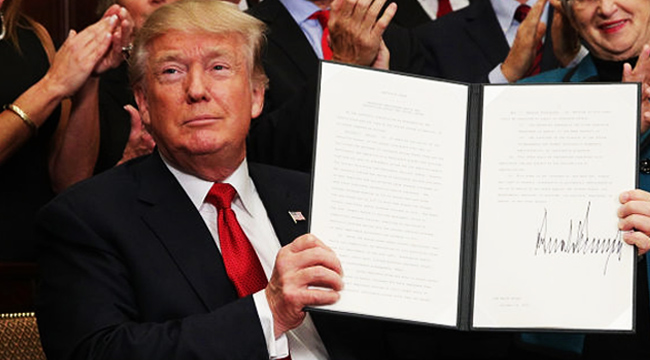
On Thursday night, the Trump administration announced it was immediately ending subsidy payments to insurers in the ACA marketplaces in an attempt to disassemble the law. But what effect will this have to the man on the street? And how will it disturb politics?
- Who Uses The Subsidies? The subsidies go to individuals and families who make 250% or less above the federal poverty line and have insurance through the ACA marketplaces. The subsidies, called cost sharing reductions or CSRs, are paid to insurance companies that are required by the ACA to offer insurance to lower-income Americans. In other words, Trump has left the stick in place, but taken away the carrot. Currently, the subsidies cost around $7 billion a year.
- What’s The Goal? To some degree, Trump is trying to cut the Gordian knot of a complicated legal dispute. During the Obama administration, Congress authorized the program but never appropriated any money for it, and conservatives have argued that it was improperly funded through other aspects of the ACA. The Justice Department recently dropped the suit, although a coalition of state’s attorneys general immediately took it over.
- What Are The Effects? Ending the payments has different effects from state to state. Some states have authorized insurers to raise prices if the subsidy ends, while others require insurers to stay in the market and eat the costs. So in some parts of the country, Trump simply jacked up insurance premiums for the poorest Americans, while in others, he’s made it more expensive for insurers to obey the law.
- To What Degree Will This Happen? By how much remains an open question, however. Enrollees who qualify for CSRs also qualify for what the law calls Advanced Premium Tax Credits, or APTCs. That’s determined by their poverty level and the cost of the second cheapest silver plan in their state. So, if the cost of plans goes up, so do the value of the tax credits. And Trump can’t touch those tax credits: The Supreme Court already made it clear they’re legal. Still, insurance is almost certainly going to become more expensive as some insurers are allowed to depart state marketplaces.
It’s clear the move was meant to force the House and Senate to pass a health care reform law, but instead, Trump might have simply picked a fight with his own party. While a state-by-state breakdown of who gets these subsidies isn’t clear, we do know which states see the most tax relief, and the top ten are all heavily Republican states. Furthermore, most of the states with the highest amount of citizens living in poverty are red. Indeed, some Republicans are already speaking out against the move:
Cutting health care subsidies will mean more uninsured in my district. @potus promised more access, affordable coverage. This does opposite.
— Ileana Ros-Lehtinen (@RosLehtinen) October 13, 2017
And the GOP can easily undercut Trump. After all, the problem was and remains how the subsidies are funded, not the subsidies themselves. All Congress needs to do is appropriate the funds. But will they? We’ll likely find out.
